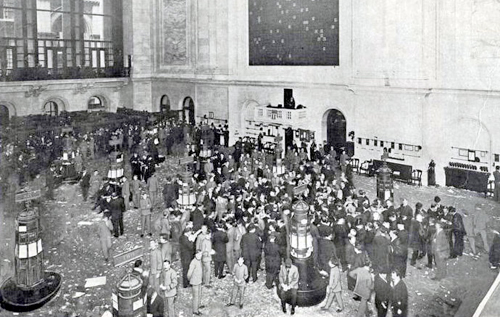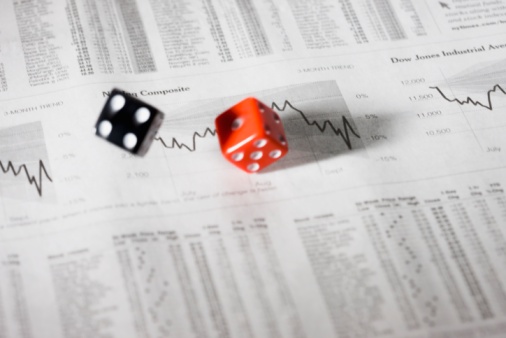 |
| It’s not a good feeling when someone demands that you pay back the money you owe – and you don’t have it. |
What happens when you owe someone money and they demand that you pay it back--right now--but you don’t have the money? All of America, from banks to companies to speculators to ordinary working people, was about to find out. If only 1930 America could have gone back in time to warn 1929 America what was coming…
Americans were buying lots of stock on margin in the 1920s--that is, they borrowed money to put a small down payment on stocks. The hope was that the stocks would become hot (begin selling at a much higher price) and could be sold at a profit to pay off the rest of what was owed.

Who did Americans borrow the money from to buy stocks? There were two sources of loans: banks and brokers. A stockbroker is someone who takes orders from customers to buy and sell stock on the stock exchange. Since people can’t just walk onto the floor of the stock exchange and start buying and selling stocks, brokers do it for them. The men in the early-20th-century photo of the stock exchange shown on the left are stockbrokers. People would call a stockbroker and say, "Here’s part of the money to buy this stock; lend me the rest and I’ll pay you back when I sell it at a profit." This is called buying on margin.
Read these tabs to learn more about the process of buying stocks on margin and the consequences when your investment falls through.
The Math of Buying on Margin
Margin Call
Gambling on Strong Stocks

For example,if you buy $10,000 worth of stock on a 10 percent margin, you only pay your stockbroker $1,000. He then uses his own money to buy the rest. This means you owe him $9,000. If the value of that stock goes down, and is only worth $7,000 instead of $10,000, you still owe your stock broker $9,000, because that’s what he spent.

If you start to become more and more in debt to your stockbroker in this way, he will likely demand that you start paying him back before he lends you any more money. This is called a margin call. The stockbroker is calling you on what you owe him, and demanding that you pay it. Until March 1929, receiving a margin call from your stockbroker was almost unheard of.

If you can’t pay your stockbroker the $9,000 you owe him, he will sell your stock at any price he can get until he makes that amount. You no longer owe him, but you also no longer have any stocks, and you lost all your money speculating on the stock market. No one wanted this to happen to them in the 1920s, and almost no one thought it could ever happen, because the paper value of stocks was always going up.
